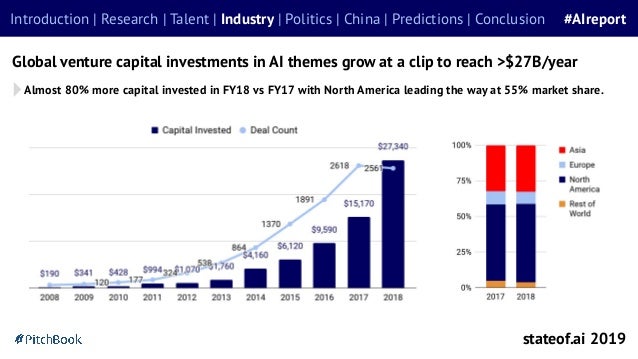At present, artificial intelligence (AI) is not just a buzzword for science and technology. It is rapidly changing the existing business operation models of many industries. It has collided with various industries and has its own unique spark. In addition, artificial intelligence has become a powerful booster for the rocket into the orbit of the intelligent era, driving the disruptive development of the retail industry.
When the retail industry is still suffering from the dilemma of online competition, through the empowerment of AI technology, offline retail has been upgraded and transformed. A digital and intelligent business model is gradually formed, with more competitive artificial intelligence retail, bringing newer and better experiences to users.
New retail in the AI era has arrived, whether or not it is ready.
In August 2018, Capgemini conducted a survey that focused on 400 global retail executives. The results show that by 2022, artificial intelligence will save retailers $ 340 billion per year, and it is estimated that 80% of the saved funds will be attributed to the application of artificial intelligence technology, which can make the supply chain and return process operate more efficiently.
In the survey, about 10% of respondents said that customer-oriented artificial intelligence applications such as smart chat robots and self-checkout services can significantly increase user satisfaction, so retailers have benefited a lot.
In this survey, about 10% of the respondents said that artificial intelligence will improve the efficiency of product promotion and reduce the rate of customer complaints. The survey also found that artificial intelligence can improve product promotion efficiency by automating advertisement placement, personalizing the online shopping experience of customers, and precision of customer recommendations. Retail and payment service companies use artificial intelligence technology to identify fraudulent charges and provide a more personalized online experience for high-frequency consumers to improve customer satisfaction and reduce complaints.
New retail market has great potential, software technology companies compete
The retail market has huge space, and some software technology companies with strong R & D capabilities have broad prospects for development. For example, in China, the elegant technology that provides a one-stop solution for big data through the AI for the retail industry is well known in the industry.
According to the latest news, Yaliang Technology has recently reached a cooperation with the veteran brand of Chinese cosmetics business-Oubasha. Obasa, which currently has more than 1,000 franchised stores, plans to deploy Yaliang Technology's face recognition system based on computer vision technology + AI + more than 10 years of experience in the retail industry.
Obasa is a brand of Guangzhou Orusa Cosmetics Co., Ltd. The company was founded in the 1980s and 1990s and has a history of more than 30 years. It has an important position in the international cosmetics operation field and enjoys a high reputation.
Yaliang Technology's leading face recognition and object recognition technology-real-time face detection and accurate recognition, the accuracy rate of face recognition is more than 99%. Algorithms such as face recognition, behavior analysis, and crowd counting based on different scenes, environments, and lights can optimize the algorithm as the scene changes, truly and effectively meeting the needs of each scene.
The main functions of Yaliang Technology's face recognition system are:
Customer group portraits: Face recognition for all customer portraits entering the store to do marketing positioning analysis; Customer group analysis: face recognition statistics for all customer portraits entering the store; Passenger flow statistics: Collecting inbound and outbound passenger flow through the number of customers, intuitive Analyze the dynamics of passenger flow; VIP membership recognition: Face recognition of VIP members to provide personalized high-end services; POS face cashiering: fast and non-sense recognition of members, seamless integration of ERP and CRM, providing the ultimate shopping experience. Employee Attendance: Intelligent face attendance to manage employee situation; remote shop inspection: remote one-click management; presidential decision-making desk: through BI business data analysis, to provide decision-making basis materials. Smart advertising screen: an advertising platform for unified management and distribution of stores.
Yaliang Technology assisted Obasa to build a smart retail store, collected customer big data with face recognition, and analyzed the data based on customer group to obtain big data on customer preferences and consumption habits, thereby increasing customer stickiness and interaction. Seize the characteristics and preferences of customer data to achieve precise marketing conversion.
The sense of experience and interaction of smart devices increases customer stickiness and shopping fun, which in turn improves customer transaction conversion rates.
The value of AI in the new retail sector
New retail, currently one of the largest areas of AI applications. Through the analysis of huge data, AI can make full use of the similarity of known customer preferences and provide recommendations for unknown preferences.
The value of AI in the field of new retail: a good sense of experience that virtually increases sales; a new shopping experience, and scene-driven marketing; reducing labor costs and increasing profit margins; improving quality to increase customer unit prices; helping digital upgrades in the retail industry, Achieve more precise marketing; diversified development of the retail industry, and promote the prosperity of the new retail industry chain.
New retail in the Internet era is based on marketing methods, takes creativity as the core, is based on content, and is supplemented with AI technology to open up a whole new situation.
Under the background of AI technology, the transformation of the retail industry has arrived. In a new way, AI constantly shows users and merchants the changes and value that AI technology brings to the retail industry.






0 Comments